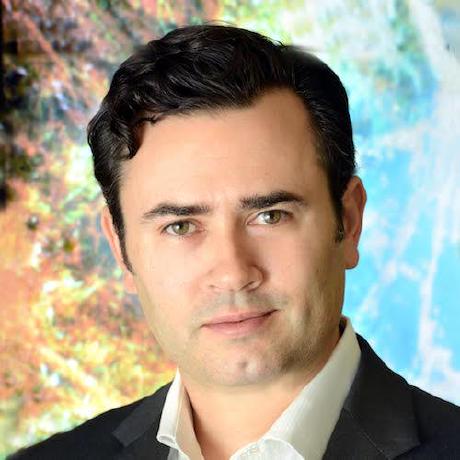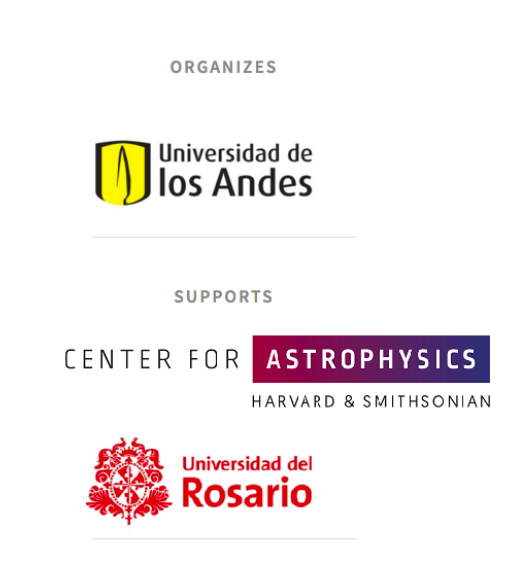Learning Machine Learning
Learning Machine Learning 2019 (LML19) is a 9-day summer course organized by the Departments of Biomedical Engineering and Electrical and Electronic Enginneering at Universidad de los Andes with the support of Universidad del Rosario and the Center of Astrophysics at Harvard University. LML19 will bring together beginners and experts in Machine Learning (ML) in a multilevel school that will cover basic concepts in this area with the opportunity to develop real-world projects. This course will start by equipping the students with basic tools in python, statistics, and optimization. Then, lectures and laboratories on current theory and techniques in ML will be offered, followed by a day where students will have the opportunity to test their learned abilities in ML and to win a prize in a competition. During the last two days of the course, students will take part in multidisciplinary workshops along with top researchers in ML. For additional information please contact [email protected].
Main Instructor:
Joshua Bloom is an American astrophysicist, full professor of astronomy at the University of California at Berkeley, and was the CTO and co-founder of the machine-learning company wise.io. He received a Bachelor of Arts in astronomy and astrophysics and physics from the Harvard College in 1996, a M.Phil from Cambridge University in 1997, and a PhD in astronomy from the California Institute of Technology CALTECH in 2002.

Format:
Language | Location | Hours |
|---|---|---|
English and Spanish | Main Campus - University of los Andes, Bogotá, Colombia | Lectures: 9am - 11am 1pm - 3pm Questions/independent work: 11am - 12pm 3pm - 4pm |
Schedule:
Date | Contents |
|---|---|
May 30th 31st | Basic in Optimization, Probability, and Python These sessions will be recorded and the videos will be available for those participants that will not be able to attend them. |
June 4th | Introductions & Course Goals (Lecture 1) Computational and Inferential Thinking (June 4th)
(Lecture 2) Supervised Learning (I) (June 4th)
|
June 5th | (Lecture 3) Unsupervised Learning
(Lecture 4) Neural Networks
|
June 6th | (Lecture 5) Deep Convolutional Neural Networks
(Lecture 6) Generative and Compressive Modelling
|
June 7th | (Lecture 7) Semi-supervised & Reinforcement Learning (Lecture 8) ML In the Real World
|
June 8th | Challenge day |
June 10th | Workshops |
June 11th | Workshops |
Para estudiantes Uniandinos
Estudiantes de pregrado IBIO: Este es un curso que va a tener doble código - uno en Ingeniería Biomédica y otro en Eléctrica y Electrónica. Pueden tomar este curso de la Escuela Internacional de Verano como curso electivo IBIO con contenido en ingeniería. Para que este curso sea válido se debe inscribir con código IBIO.
Estudiantes de otros departamentos por favor verificar con sus respectivos coordinadores de programa.
Estos cursos tienen tarifa especial (igual que un curso de vacaciones de 3 créditos), deben inscribirse en las mismas fechas que los cursos de vacaciones y seguir el proceso de matrícula. Costos y pasos de inscripción aquí.
Estudiantes de maestría en IBIO: Este es un curso que va a tener doble código - uno en Ingeniería Biomédica y otro en Eléctrica y Electrónica. Le recomendamos que lo inscriba con código IBIO.
Recuerde que sólo una de las electivas puede ser por fuera del Departamento. Estos cursos tienen el mismo costo que una materia de maestría durante el semestre, deben inscribirse en las mismas fechas que los cursos de vacaciones y seguir el proceso de matrícula.
Registro por Educación Continuada (estudiantes y externos)
Importante: Los cursos de la Escuela de Verano pueden tomarse en la modalidad de Educación Continuada. Está modalidad únicamente otorga certificado de asistencia y no da lugar a nota ni a reconocimiento de créditos. Inscríbase por Educación Continuada aquí.
Organizers:
Department of Biomedical Engineering, Universidad de los Andes, Colombia
Department of Electrical and Electronic Engineering, Universidad de los Andes, Colombia
Fernando Lozano
Carlos Quintero
Harvard-Smithsonian Center for Astrophysics, USA
Rafael Martínez Galarza
Departamento de Matemáticas Aplicadas y Ciencias de la Computación, Universidad del
Julián Rincón
Valérie Gauthier Umaña
Rosario, Colombia
